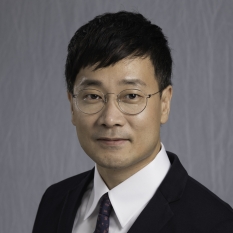Dr. Younbo Jung is an Associate Professor at the Wee Kim Wee School of Communication and Information, Nanyang Technological University, Singapore. He holds a Ph.D. from the Annenberg School for Communication and Journalism at the University of Southern California. At NTU, he has received five teaching awards, including the Nanyang Education Award (University) – Bronze in 2014, and has been a Fellow of the Teaching Excellence Academy since 2014. His research explores the socio-psychological effects of interactive media, such as video games, virtual reality, and human-robot interaction, with applications in education and medical aids. His projects include using virtual and mixed reality for emergency evacuation training and senior learning, the use of video games and social TV to improve seniors' well-being and foster intergenerational bonding, and studying the effects of social robots on human interaction and well-being.


Wee Kim Wee School of Communication and Information
Navigating Trust in AI: Implications for Intergenerational Learning in an Ageing Society
Artificial intelligence (AI) has become an integral part of various sectors, influencing decision-making and fostering new forms of human-machine relationships. In particular, AI's role in facilitating intergenerational learning offers a unique opportunity to explore how trust in AI systems shapes these interactions. Trust is a critical factor in the successful adoption of AI, especially in scenarios that require complex human judgment, empathy, and communication. However, while AI excels in data processing and pattern recognition, public trust remains limited to its mechanical capabilities, with skepticism surrounding its ability to handle tasks requiring social intelligence and emotional understanding. In this presentation, I will explain the concept of trust in AI and its implications for intergenerational learning. With AI increasingly integrated into daily activities, including AI-driven recommendations and robotics designed to complement cognitive and physical limitations, understanding how to build trust in AI is crucial. This includes considering its perceived competence, transparency, and ability to replicate human-like decision-making and care. Drawing on research from communication, psychology, and philosophy, this presentation explores how trust in AI can be developed and maintained in intergenerational learning environments. It addresses key questions, such as whether AI-generated trust fundamentally alters human interactions and how AI can be trusted to manage sensitive, emotionally charged relationships remotely. By analyzing the symbiotic relationship between humans and AI, the presentation offers insights into the evolving role of trust in AI and its potential to foster meaningful intergenerational connections, enriching both educational experiences and social bonds.








